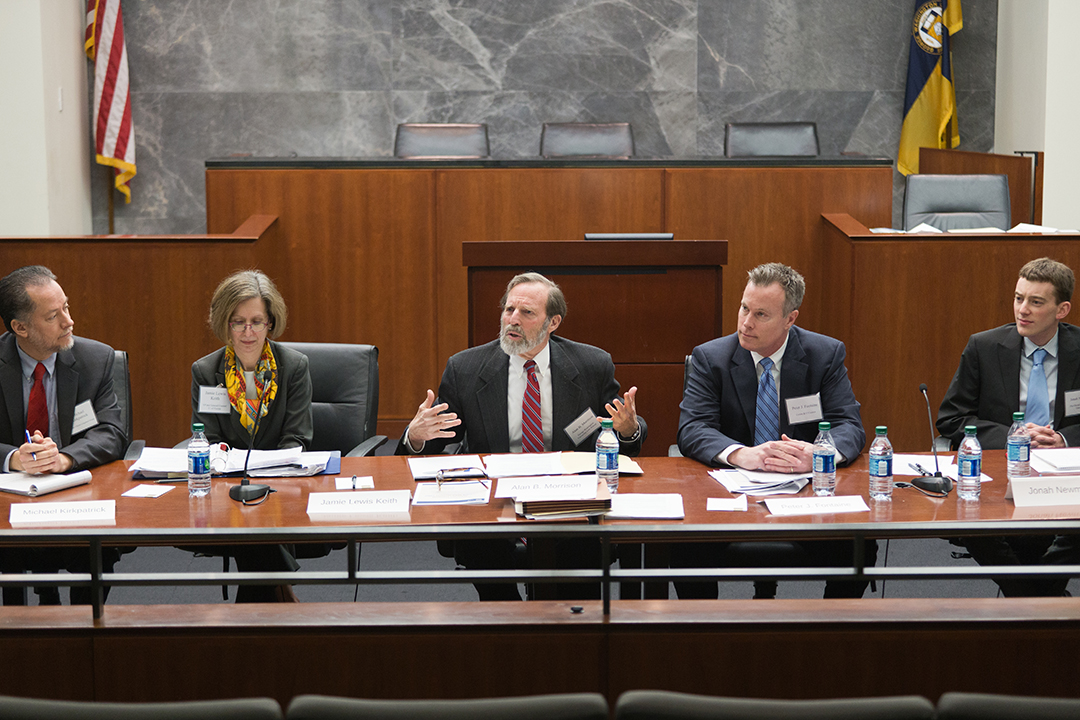In most states, university faculty members are state employees, and their records—both paper and electronic—are state records. That means that they are presumptively subject to state open records (FOIA) laws. The problem is best illustrated by a case heard by the Virginia Supreme Court in January 2014. In that case, the e-mails sent to and received by a former University of Virginia (UVA) faculty member dealing with his research on climate change were being sought by a group that had a different view of the science and brought five similar suits in Texas and Arizona.
On April 1, 2014, GW Law held a conference on this topic with two major goals. First, the program informed faculty and the general public that FOIA laws, which most people support, can have serious consequences for academic freedom. It explored the kinds of records that are subject to those laws, including those that originate outside the state university, such as those from other academics, government agencies, or private individuals.
Second, it explored solutions that both preserve academic freedom and recognize the right of the public to know how state funds are used. The latter discussion also considered where the line might be drawn between a faculty member’s publicly disclosable work and private work that should be exempt from disclosure under state FOIA laws.
The program included several panels. The first panel focused on the UVA case as an example: What did the requester want and why, and why did the university not want to turn over the materials? This discussion included a brief look at the legal issues and a description of other records that might have been sought, but were not. The next panel featured two participants on either side of the normative question of whether various kinds of faculty records should or should not be available. Participants in these and other panels included lawyers, faculty members directly affected by these laws, and the press and other requesters. In the third panel, discussants considered a range of possible solutions, such as offering a total exemption for all state universities from state FOIA laws, creating narrow exceptions that focus on special needs of academics, or leaving the status quo largely in place. The final panel discussed special problems, such as instances in which the university is represented by the state attorney general rather than its own lawyers; the line between public and private records for faculty members who are engaged in a wide range of outside activities; whether private materials may be kept separate on state e-mail systems; and situations in which the university wants to disclose and the faculty member does not.


